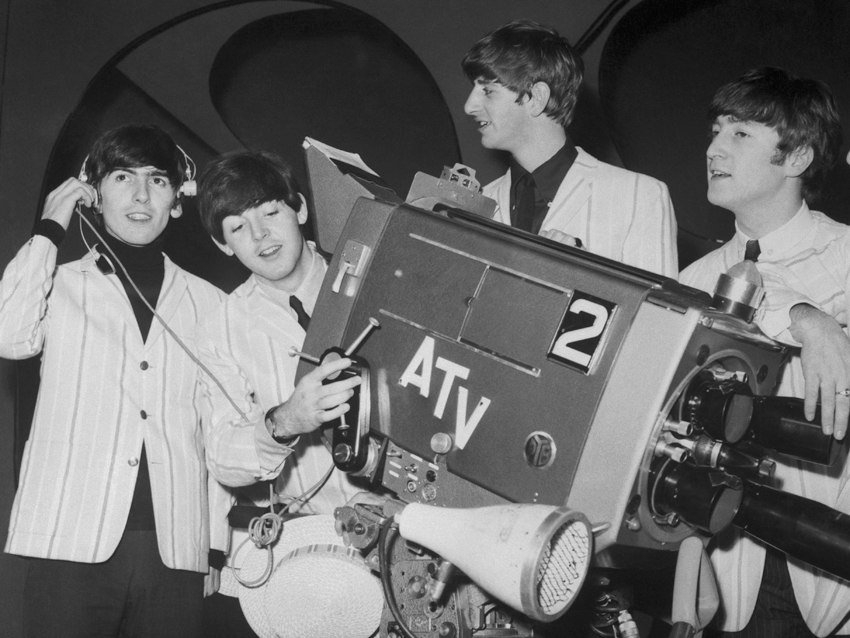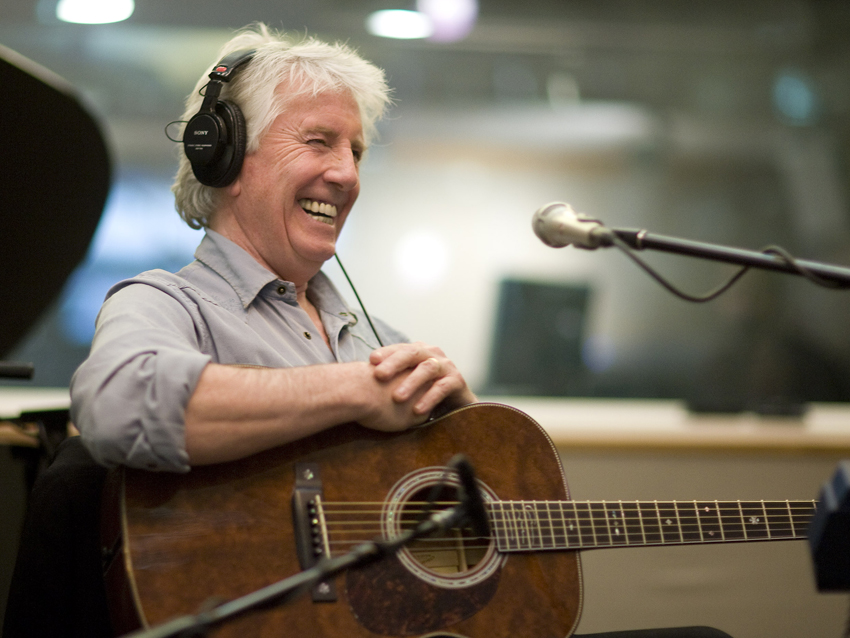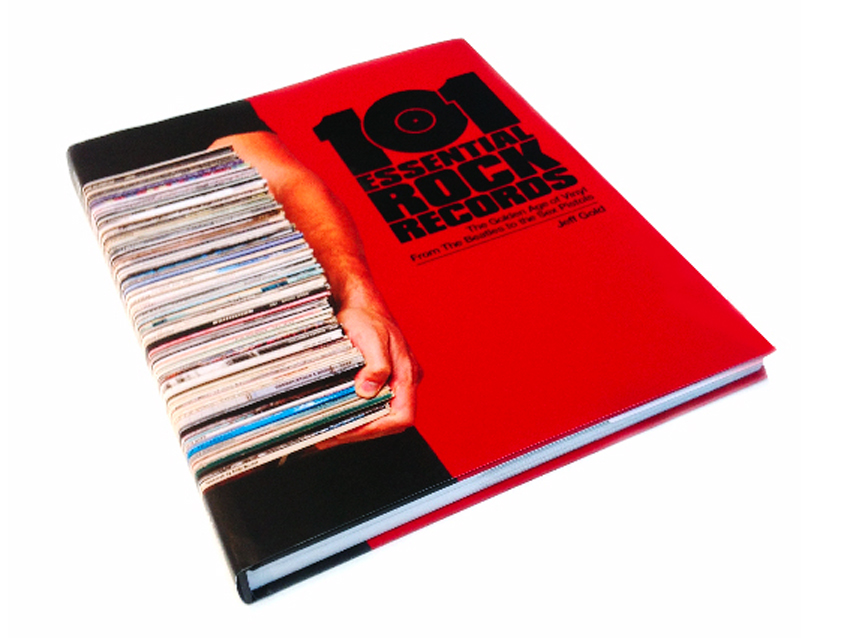
"How could you not be affected by their energy and song writing abilities?" asks Graham Nash about The Beatles and, more specifically, their debut album, Please Please Me.
In Jeff Gold's upcoming book, 101 Essential Rock Records: The Golden Age Of Vinyl, From The Beatles To The Sex Pistols, Graham, a two-time Rock And Roll Hall Of Fame inductee (for both The Hollies and Crosby, Stills & Nash), recalls hearing the Fab Four's first full-length, which he says "was incredible to listen to - new, fantastically energetic."
Nash writes about Please Please Me as well as Joni Mitchell's Blue in 101 Essential Rock Records, and he's joined by fellow musician essayists Devendra Banhart, David Bowie, Peter Buck, Nels Cline (Wilco), Robyn Hitchcock, Johnny Marr and Suzanne Vega, all of who share their thoughts on some of their favorite discs.
101 Essential Rock Records: The Golden Age Of Vinyl, From The Beatles To The Sex Pistols (Gingko Press) will be available on hardcover in the US on 30 November. (You can pre-order it here.) The book will be be published in the UK and Europe on 6 December and in Australia on 16 December.
The following is Graham Nash's essay on Please Please Me, reprinted by permission of Gingko Press.
I started buying records in 1956. The first one I bought was "Be-Bop-A-Lula" by Gene Vincent; it was on a '78' disk and I was heartbroken when I sat on it and broke it to pieces. I bought it from a record store on Regent Road in Salford near Manchester, where I lived.
There was a radio program being broadcast from Luxembourg in Europe on a Sunday evening; it would be faint but listenable. My family had just gotten a radio and I used to hear it through my bed-post, when I was supposed to be sleeping, and getting ready to go to school the next day. I was riveted to this new sound and raved about this new music at school with my friend Freddy Marsden who knew more than I did about rock and roll.
Want all the hottest music and gear news, reviews, deals, features and more, direct to your inbox? Sign up here.
I first heard the Beatles first single, "Please Please Me," on an acetate in the offices of Dick James, a publisher of their music. It was an obvious smash hit record. Everyone knew it. Everyone.

"Everybody, certainly every girl, knew the Beatles were going to be outrageously successful," writes Graham Nash. © LUCAS JACKSON/Reuters/Corbis
I first met the lads in November of 1959 at a talent show at the Ardwick Empire Theater in Manchester. I wish I had a copy of that show. On it were me and Allan Clarke who later formed the Hollies, a man named Freddy Garrity who formed Freddy and the Dreamers, a guy called Ron Wycherley who became Billy Fury and a group from Liverpool called Johnny and the Moondogs, later of course to become The Beatle. At this point Allan and I had not started the Hollies; we didn't begin until '62.
Everybody, certainly every girl, knew the Beatles were going to be outrageously successful. When I worked in a coffee bar called the 2 Jays (later to be named The Oasis,) every girl wanted them. They walked into the door and it was over; they all looked like James Dean in black leather.
One evening the Hollies were playing at the Twisted Wheel club and the Beatles were at the Oasis. After the show we all went to an 'after hours' club where liquor was served; very hush, hush in those days, especially for teenagers. The lads were going down to London to record their first album and John had forgotten the words to Anna by Arthur Alexander, so I showed him the words.
It was the first time I'd ever seen anyone eat a flower. The bass-player for the Big Three, Johnny Gustafson, who opened for the Beatles (I think) was a little drunk and at one point I remember that he actually ate a large rose and a cigarette.

The Beatles' album "Please Please Me" was incredible to listen to - new, fantastically energetic. As with the Beatles, the Hollies first album was also a recording of our "set." We did the 30 minute set twice and made the record from that. Up to this point long-playing records were basically a bunch of singles put out to capitalize on the success of the "singles." But John realized that they could actually be a collection of music that made a statement, and after "Please Please Me" that's what they did. Of course it affected every band; the Beatles opened up the door and we all ran through it.
I remember at a show in the Kings Hall, in Stoke-on-Trent in the North of England. They had only just written "Misery" for a British singer called Helen Shapiro (who I later took on a dinner date) and the Hollies were opening for the Beatles. Just before the soundcheck John and Paul sang their new song for me, one voice in each ear, quite a musical moment for me.
How could you not be affected by their energy and song writing abilities. They, and Bob Dylan, showed us the way to create music that meant something other than "moon, june" lyrics, and it was when I was writing 'deeper' songs that the Hollies became disenchanted with me and it was the start of the end. I'd written "King Midas in Reverse" and although it was a critical success it failed to get us into the top ten. They didn't trust me anymore and that hastened my departure.
Joe is a freelance journalist who has, over the past few decades, interviewed hundreds of guitarists for Guitar World, Guitar Player, MusicRadar and Classic Rock. He is also a former editor of Guitar World, contributing writer for Guitar Aficionado and VP of A&R for Island Records. He’s an enthusiastic guitarist, but he’s nowhere near the likes of the people he interviews. Surprisingly, his skills are more suited to the drums. If you need a drummer for your Beatles tribute band, look him up.
